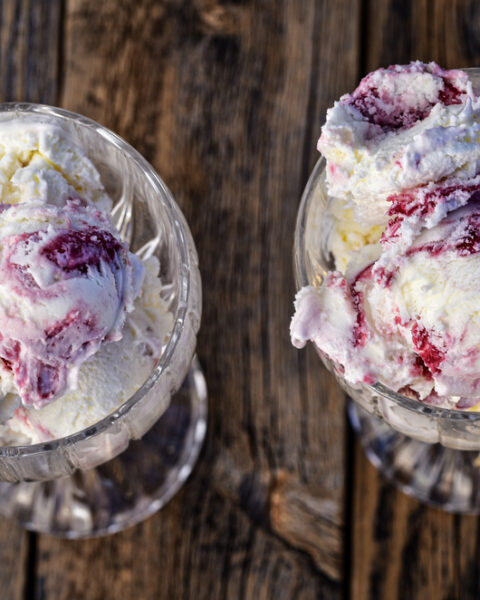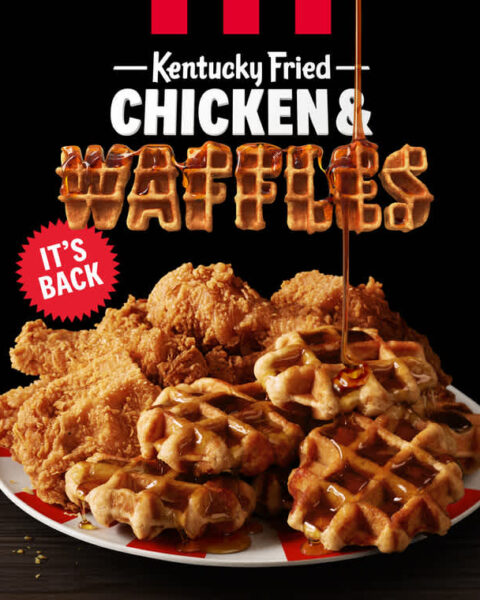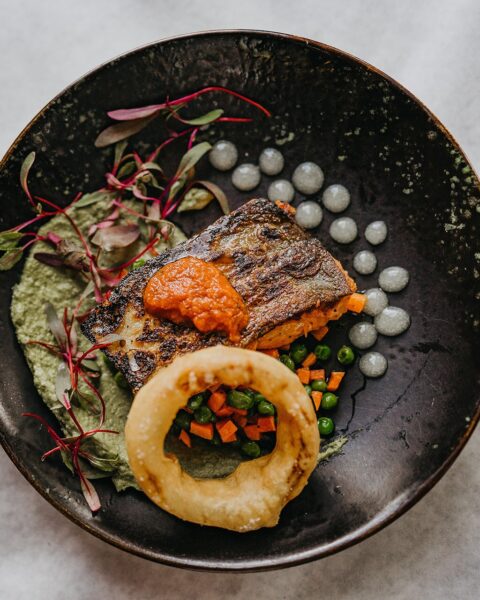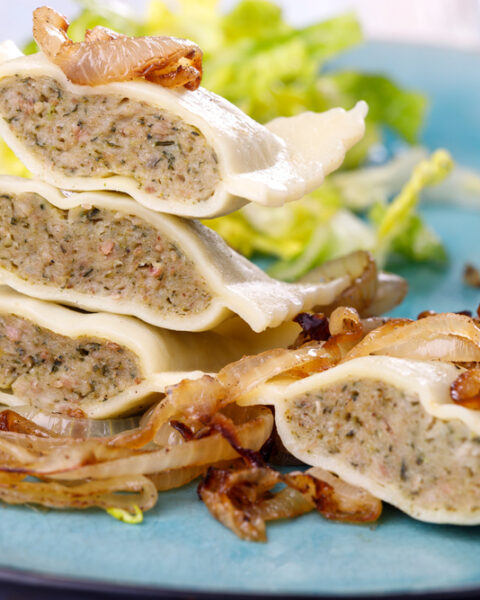Breakfast is often touted as the most important meal of the day, but some popular options can be deceptively unhealthy. While marketing campaigns and packaging might make these foods seem like nutritious choices, the reality is they often contain hidden sugars, unhealthy fats, or lack essential nutrients. Check out these breakfast foods that aren’t as healthy as they seem, helping you make better choices for your morning meal.
Contents
- 1 Granola
- 2 Fruit-Flavored Yogurt
- 3 Instant Oatmeal
- 4 Smoothies
- 5 Muffins
- 6 Fruit Juices
- 7 Bagels
- 8 Cereal
- 9 Flavored Coffee Drinks
- 10 Instant Pancakes
- 11 Protein Shakes
- 12 Breakfast Sandwiches
- 13 Flavored Oat Milk
- 14 More From RetailShout
- 15 15 Aldi Finds to Put in Your Cart This October
- 16 14 Healthier Alternatives to Your Kids’ Favorite Foods
Granola
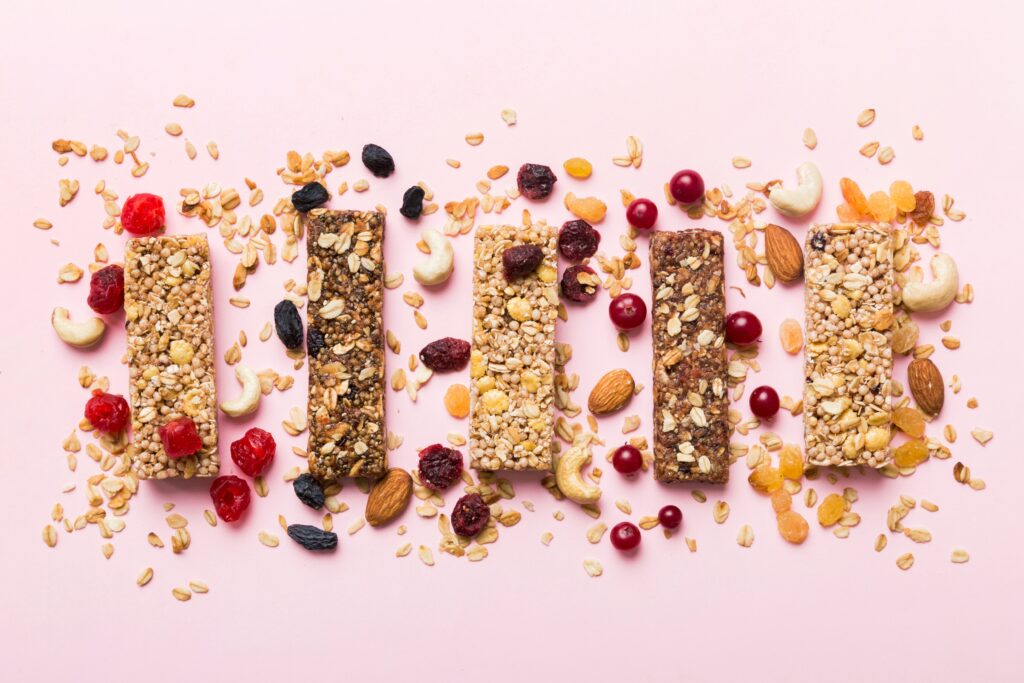
Granola may appear healthy because it’s made from oats and nuts, but it often comes loaded with sugar and unhealthy fats. Many store-bought brands contain as much as 20 grams of sugar per serving, which can lead to energy crashes later in the day. The high-calorie content combined with large portion sizes can also make it easy to overeat. While oats and nuts provide fiber and protein, they are often overshadowed by added sweeteners. A healthier option is to make your own granola at home, controlling the ingredients and sugar levels.
Fruit-Flavored Yogurt
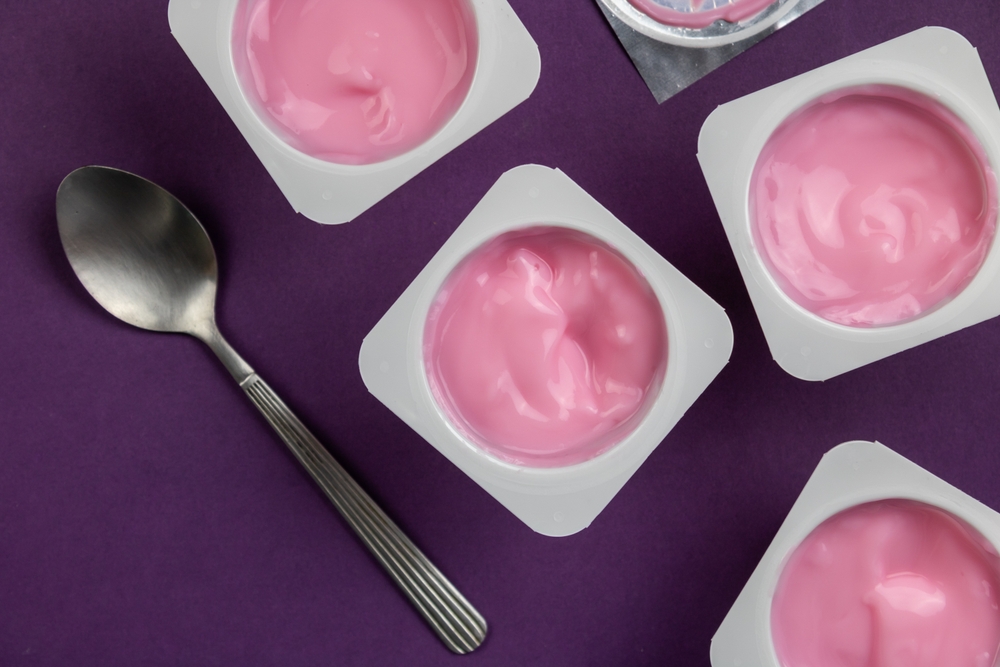
Yogurt is often considered a healthy breakfast choice due to its protein and probiotics, but fruit-flavored varieties can be packed with sugar. Many brands add fruit syrups or sugary mixes, pushing the sugar content to as much as a dessert. This can lead to spikes in blood sugar, which isn’t ideal first thing in the morning. Opt for plain, unsweetened yogurt and add fresh fruit for a healthier, natural sweetness. This way, you can enjoy the benefits of yogurt without the hidden sugar.
Instant Oatmeal
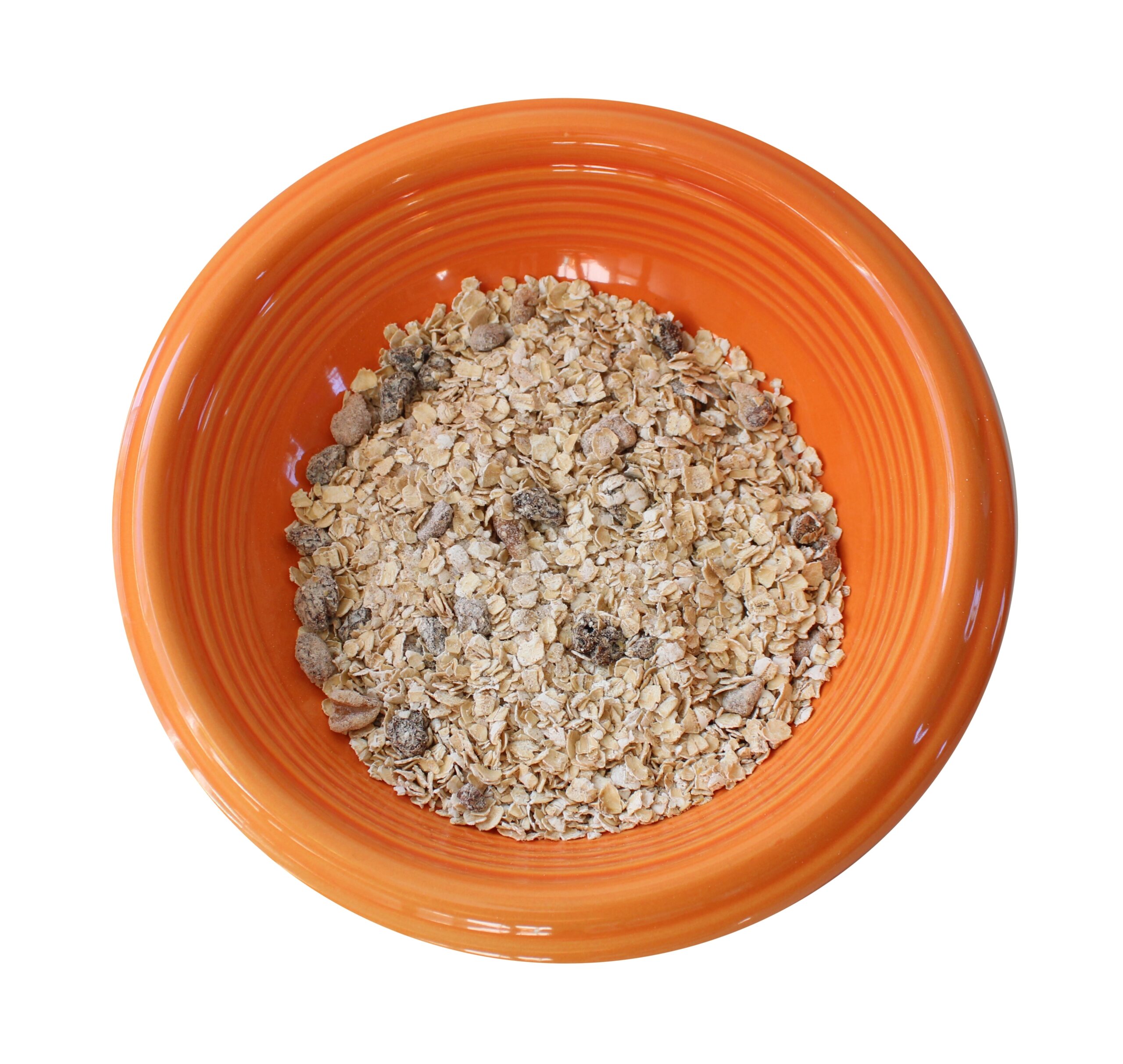
Instant oatmeal is a quick and easy option, but flavored varieties can be full of added sugars and artificial ingredients. While oats themselves are a healthy, fiber-rich choice, the pre-packaged versions often come with flavorings that contain more sugar than you might expect. Some brands can have up to 12 grams of sugar per serving. This can turn a wholesome grain into a less nutritious breakfast option. Stick to plain oats and add your own fresh fruit or spices like cinnamon for natural sweetness and flavor.
Smoothies
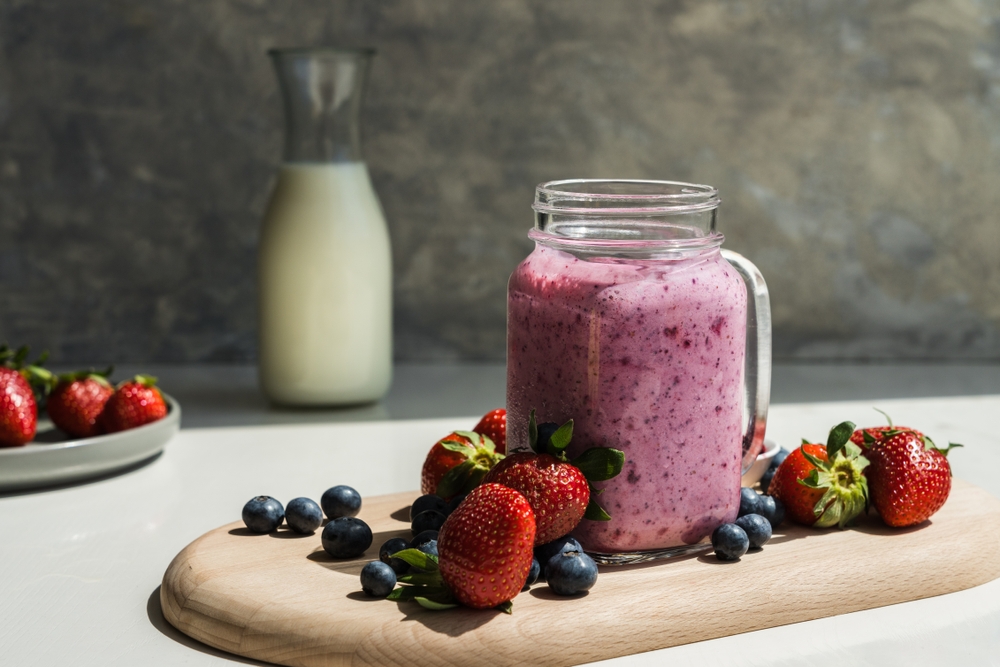
Smoothies can be healthy if made with the right ingredients, but store-bought versions often contain high amounts of sugar from fruit juices, sweetened yogurts, and added syrups. What starts as a seemingly nutritious drink can quickly turn into a sugar bomb with little fiber or protein to balance it out. Many smoothies also lack healthy fats or enough protein, which means you might feel hungry soon after. For a better option, make smoothies at home using whole fruits, unsweetened yogurt, and healthy add-ins like flaxseed or almond butter.
Muffins
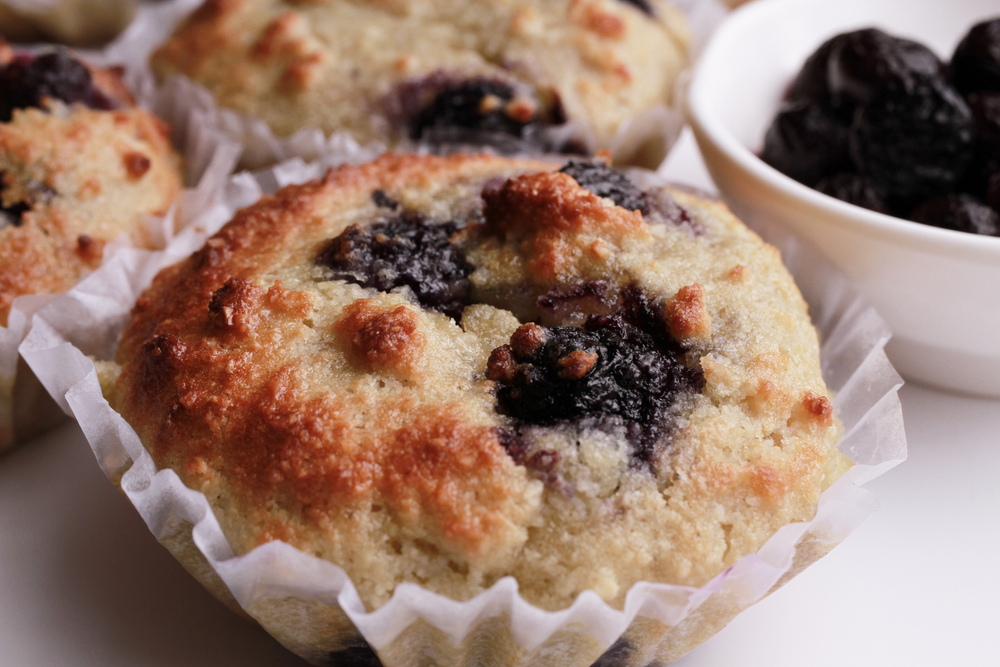
Muffins might look like a healthier alternative to pastries, but they’re often no better than eating cake for breakfast. Commercially made muffins can contain high levels of sugar, refined flour, and unhealthy fats, sometimes exceeding 400 calories per serving. Even bran muffins, which are marketed as healthy, can have a similar nutrient profile when loaded with sugar. The lack of fiber and protein also means they won’t keep you full for long. If you love muffins, consider making your own with whole grains, minimal sugar, and healthy fats like olive oil.
Fruit Juices
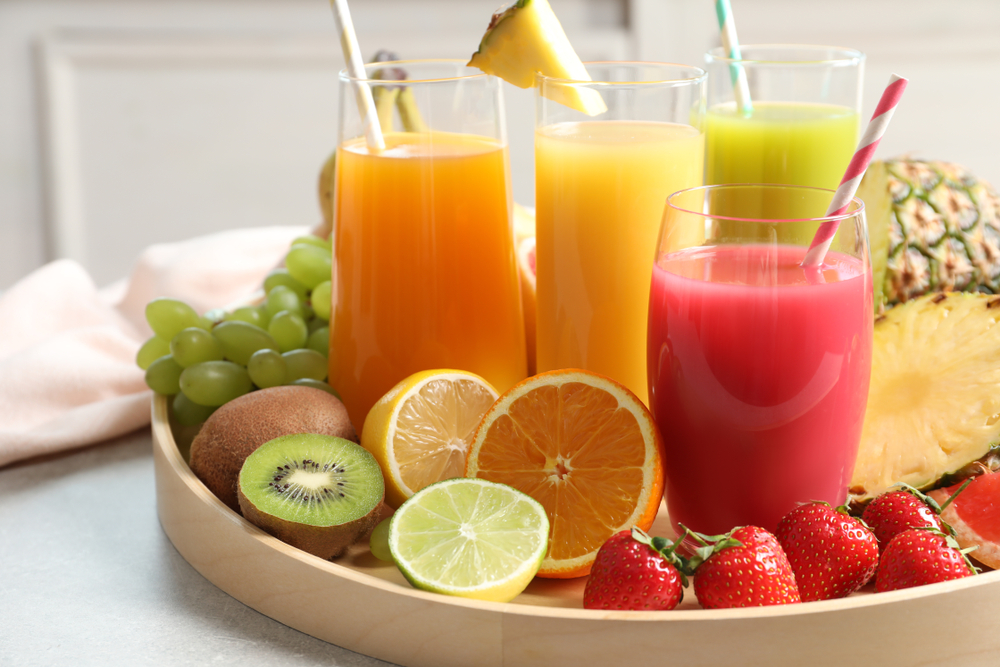
Many people opt for fruit juice as a refreshing way to start the day, believing it’s packed with vitamins. However, even 100% fruit juice can be loaded with natural sugars and lack the fiber found in whole fruits. Drinking juice can cause your blood sugar to spike, leading to an energy crash shortly after. Additionally, juice is often over-consumed due to its liquid form, which can lead to excessive calorie intake. For a healthier choice, stick to whole fruits that provide both vitamins and fiber to keep you feeling full.
Bagels
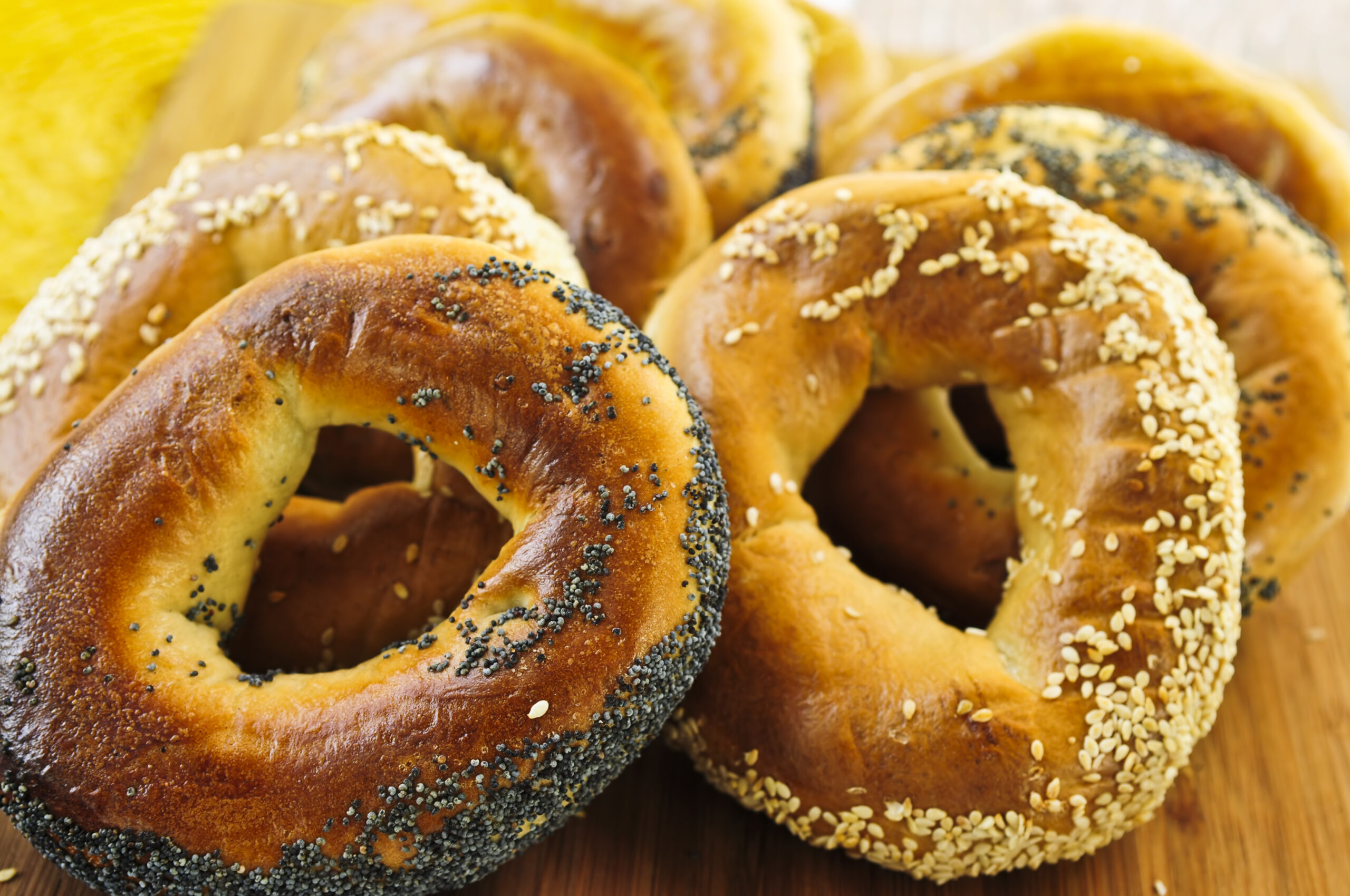
Bagels are a breakfast staple, but they are typically made from refined flour and can contain as many as 300-500 calories each before any toppings. When paired with cream cheese or butter, the calorie count rises even more. The refined carbs in bagels are quickly digested, leading to spikes in blood sugar and hunger shortly after eating. Whole-grain bagels are a slightly better option, but portion control is key. Consider half a bagel topped with avocado or a boiled egg for a more balanced meal.
Cereal
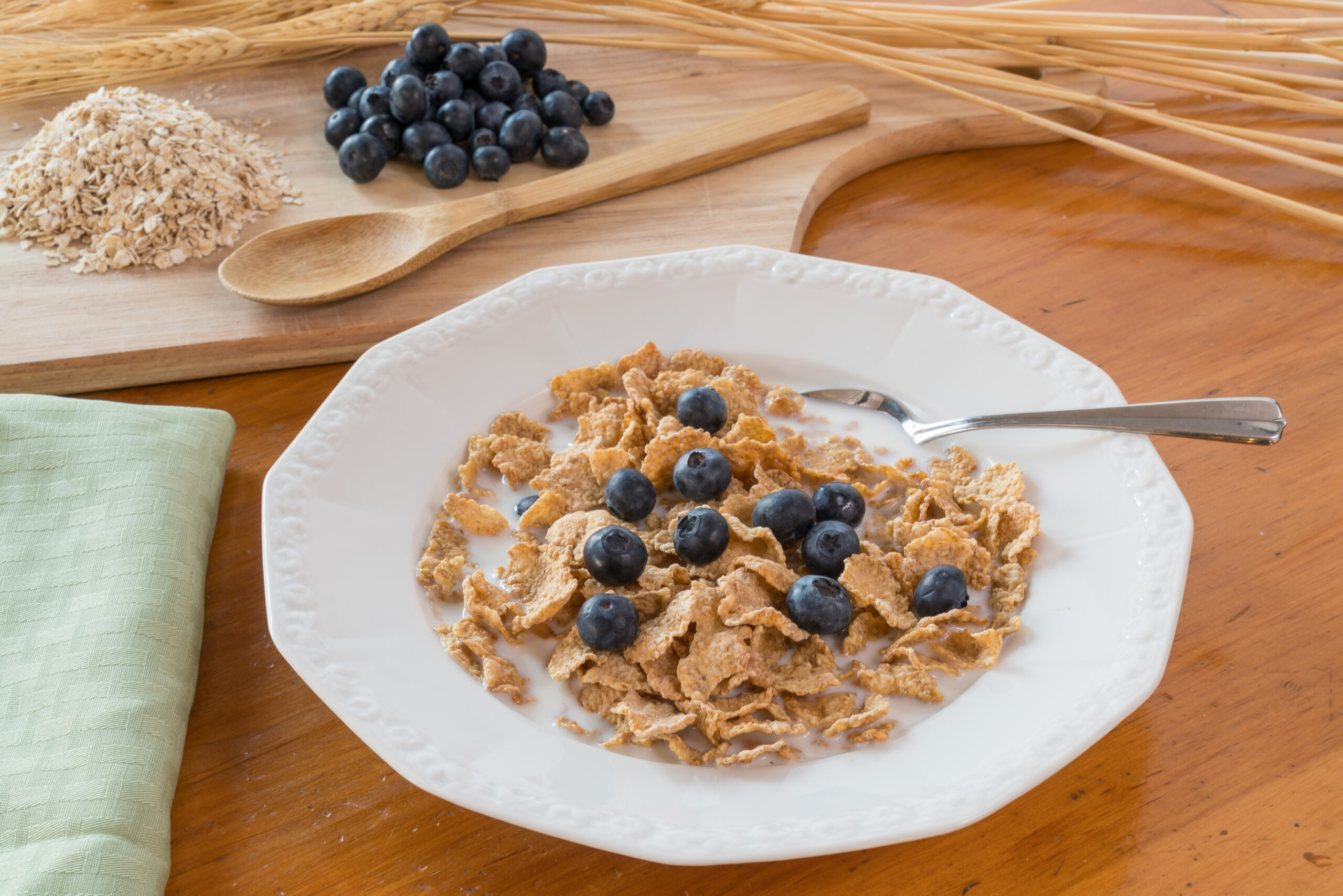
Cereals, especially those marketed to children, are often packed with sugar and lack essential nutrients like fiber and protein. Even cereals labeled as “whole grain” or “fortified with vitamins” can be misleading, with added sugars hidden under various names. Consuming these sugary cereals can lead to energy crashes and overeating later in the day. For a healthier breakfast, opt for cereals with at least 5 grams of fiber and less than 5 grams of sugar per serving, or try unsweetened options like shredded wheat.
Flavored Coffee Drinks
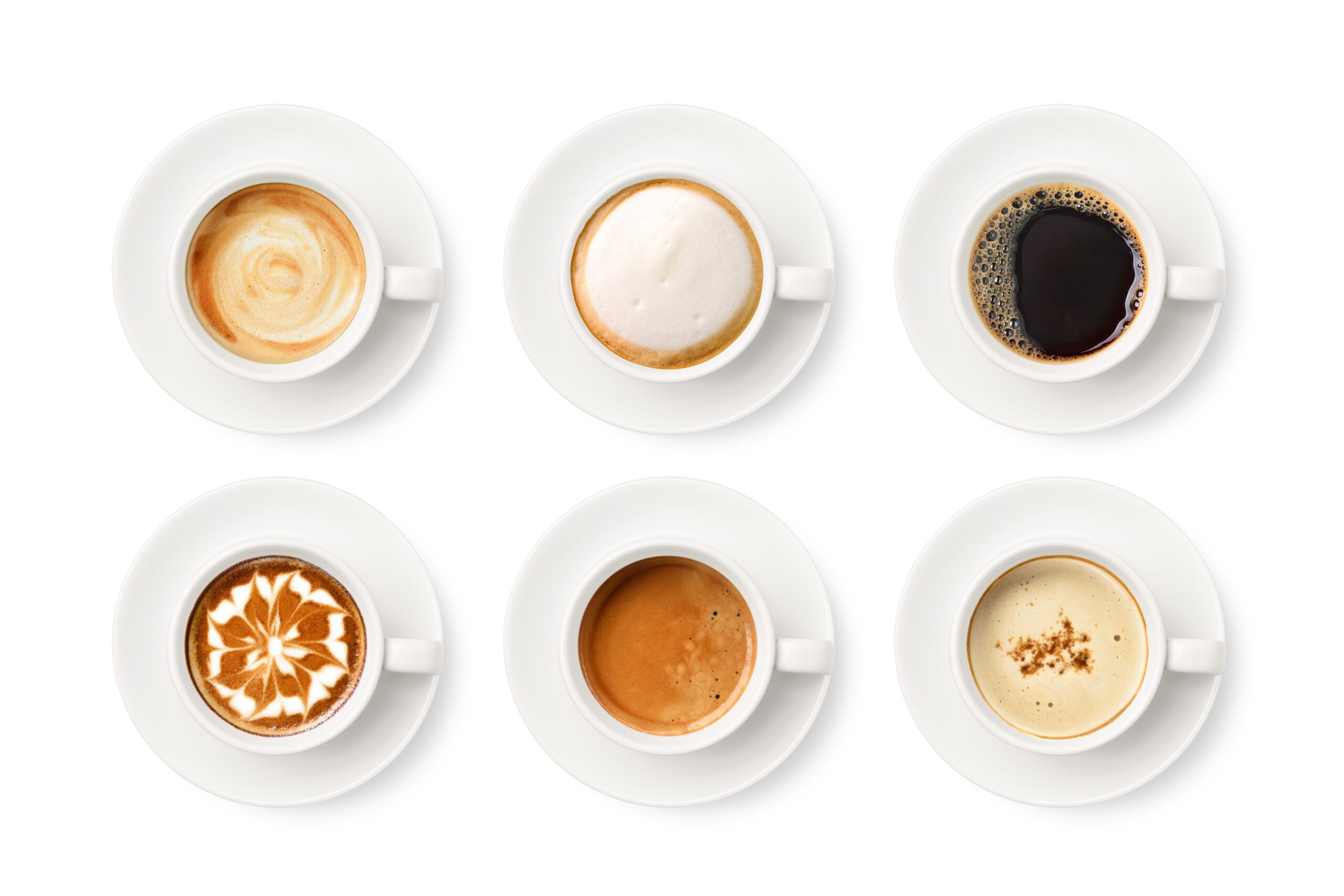
Coffee itself is low in calories, but flavored coffee drinks from popular chains can pack in hundreds of calories and excessive sugar. Drinks like flavored lattes, frappuccinos, and macchiatos often contain syrups, whipped cream, and even drizzles of caramel or chocolate, making them more like dessert than breakfast. These drinks also lack the protein or fiber needed to keep you satisfied. Stick to black coffee or add a splash of milk and a sprinkle of cinnamon for a healthier way to enjoy your morning brew.
Instant Pancakes
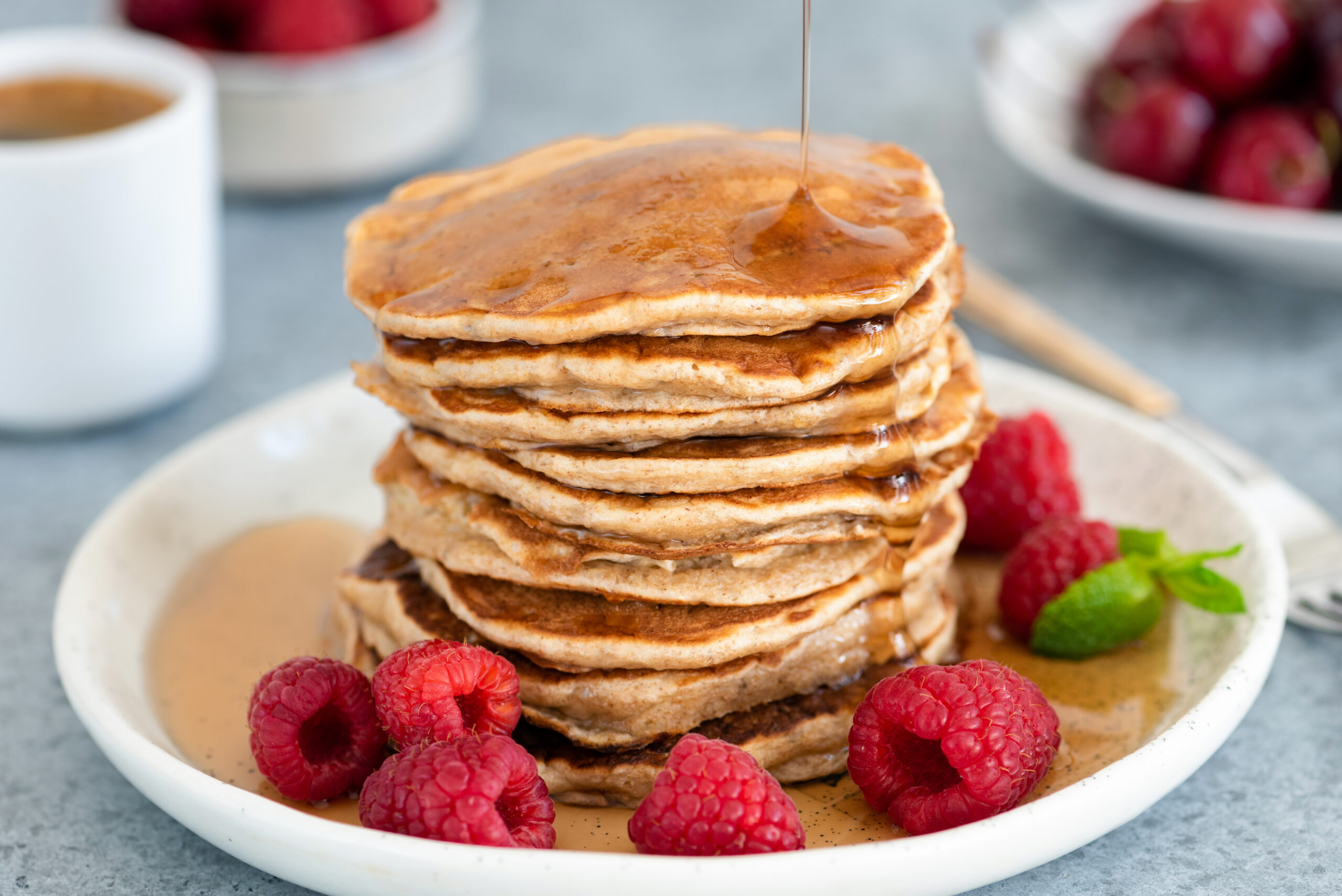
Instant pancake mixes are a quick and easy breakfast option, but they are often made with refined flour and contain added sugars and preservatives. While pancakes themselves can be part of a balanced meal, instant versions lack the fiber and nutrients found in whole grains. Adding sugary toppings like syrup only worsens the nutritional profile. If you enjoy pancakes, consider making a homemade version using whole-grain flour and top with fresh fruit or a dollop of Greek yogurt.
Protein Shakes
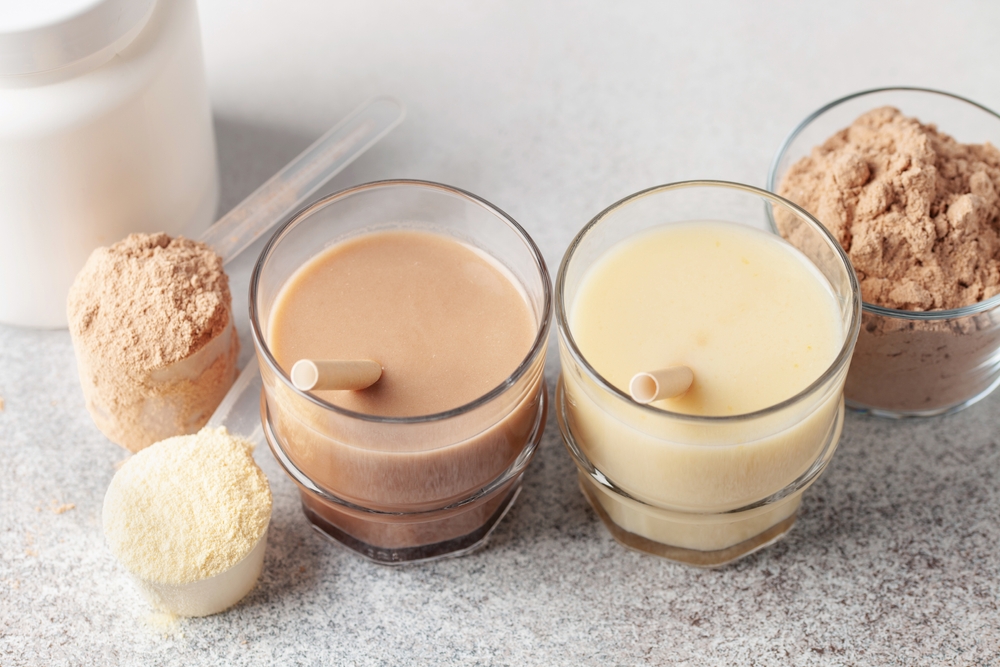
Protein shakes are often marketed as a health food, but many store-bought versions are filled with artificial sweeteners, processed ingredients, and unhealthy additives. While they provide protein, they can also be high in sugar, especially when flavored. Some shakes also lack other important nutrients like fiber, leaving you hungry soon after. If you rely on protein shakes, make your own at home using a clean protein powder, unsweetened milk, and a handful of greens or berries for added nutrients.
Breakfast Sandwiches
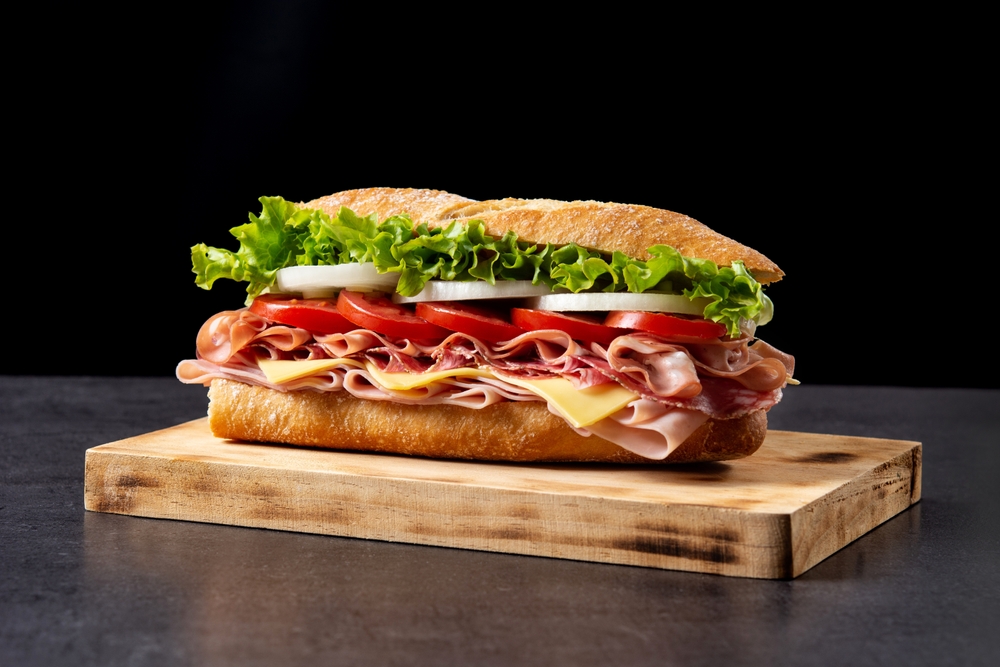
Pre-made breakfast sandwiches from fast-food chains or grocery stores are often high in sodium, unhealthy fats, and calories. Even if they contain eggs and whole grains, the addition of processed meats like bacon or sausage can make them less healthy. The refined bread used in many sandwiches can also cause blood sugar spikes. If you enjoy breakfast sandwiches, try making your own at home with whole-grain bread, lean protein, and plenty of vegetables.
Flavored Oat Milk
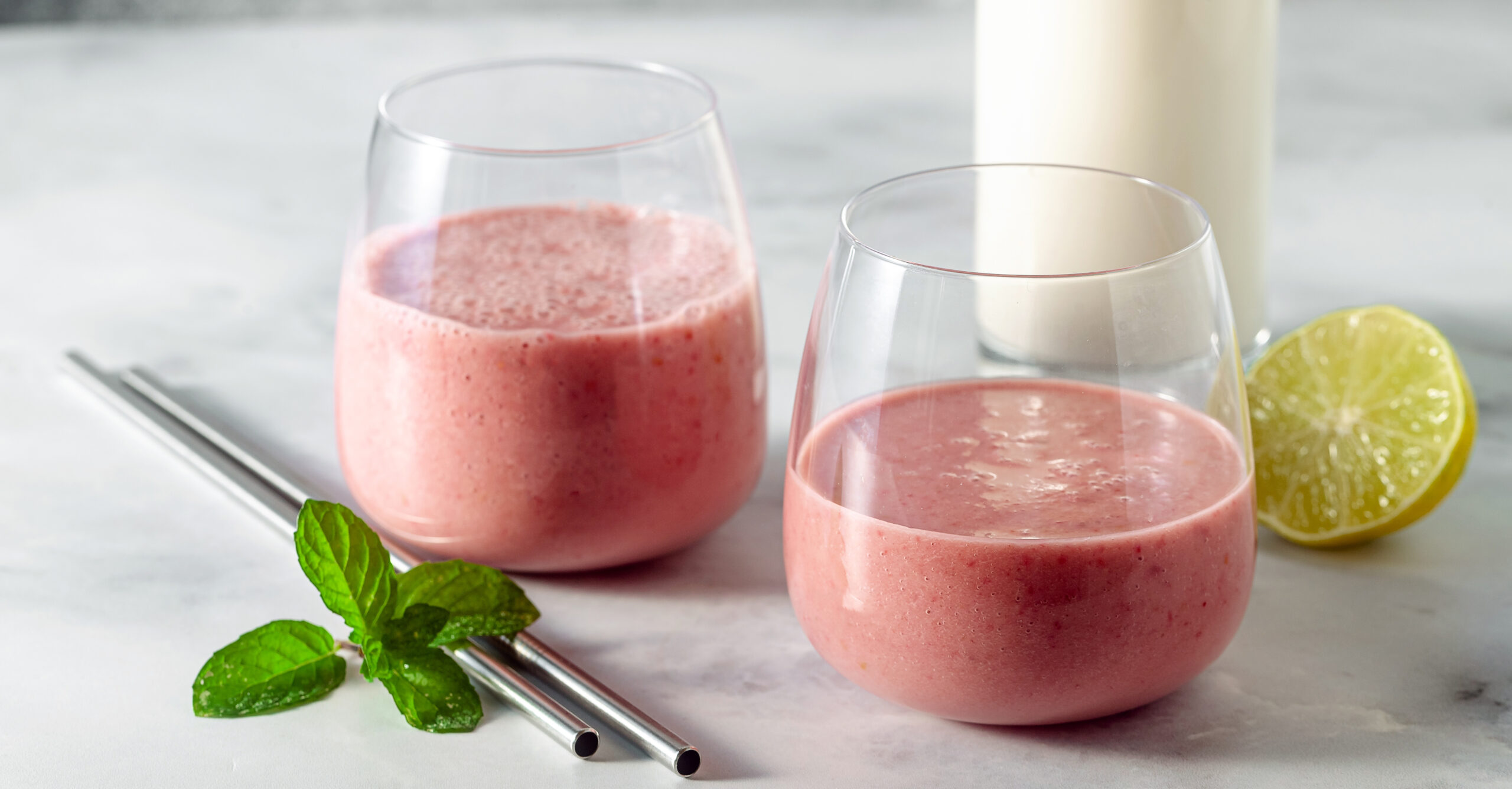
Oat milk has become a popular alternative to dairy milk, but flavored varieties can be high in added sugars. While oat milk itself contains some fiber and vitamins, the sweetened versions often pack in as much sugar as a soda. This can make it a less healthy option for your morning coffee or cereal. If you prefer oat milk, stick to unsweetened varieties to avoid the hidden sugars.
This article originally appeared on RetailShout.
More From RetailShout
10 British Party Favorites the Rest of the World Should Know
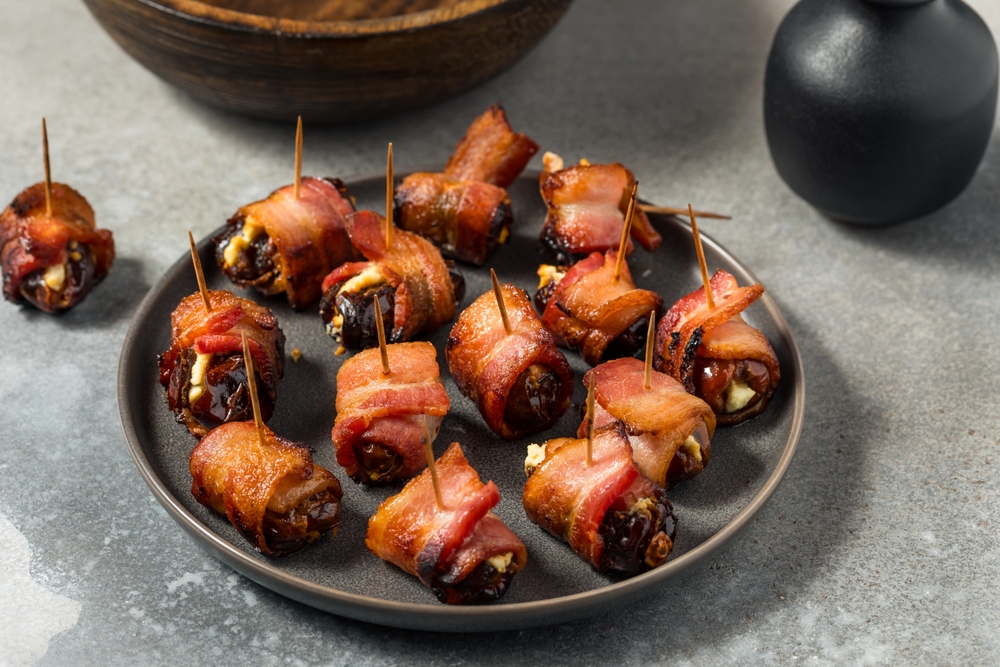
When it comes to party foods, Britain offers a treasure trove of delectable bites that many outside the UK have yet to experience. These traditional British snacks and treats are perfect for any festive occasion, bringing a taste of Britain’s culinary heritage to the table. Read More.
15 Aldi Finds to Put in Your Cart This October
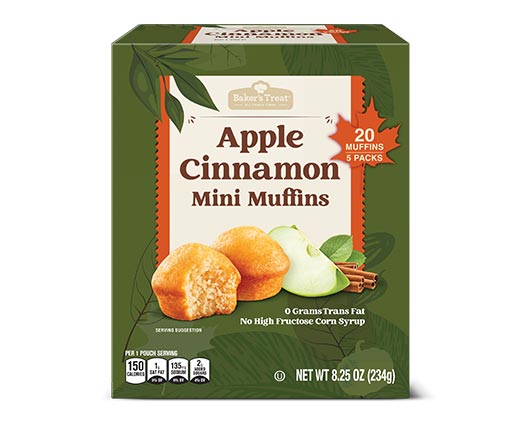
October is here, and Aldi has some amazing finds to make the most of the season. The store’s seasonal lineup is packed with everything from festive snacks to fall-inspired treats that are perfect for cozy nights in or spooky gatherings. Read More.
14 Healthier Alternatives to Your Kids’ Favorite Foods
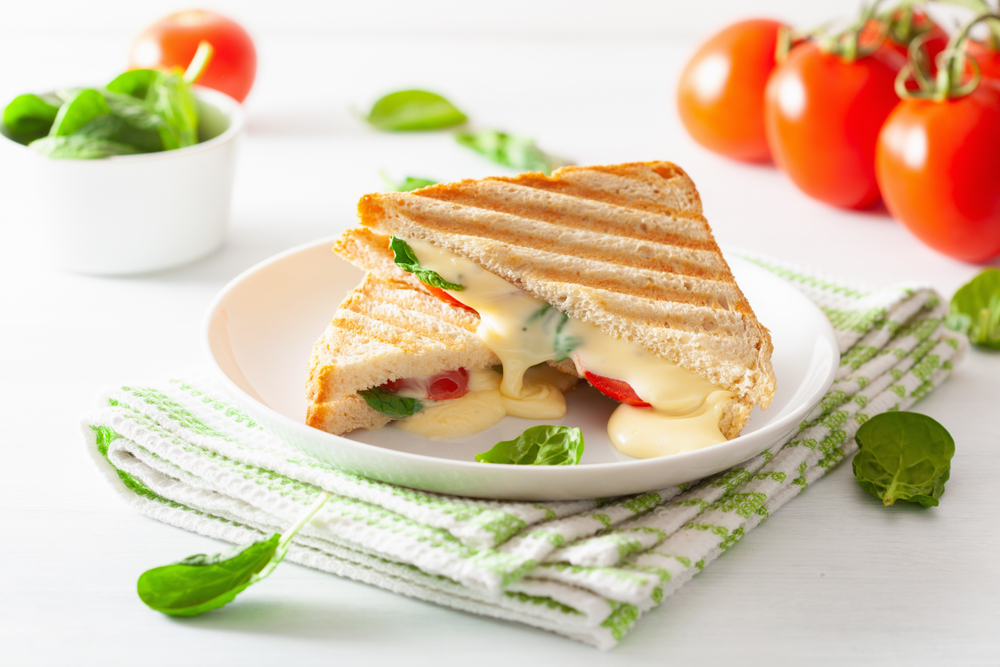
Getting kids to eat healthy can be quite challenging, especially if they’re picky eaters. Their favorite foods are often greasy and salty, making it hard to ensure they get a balanced diet. Read More.


